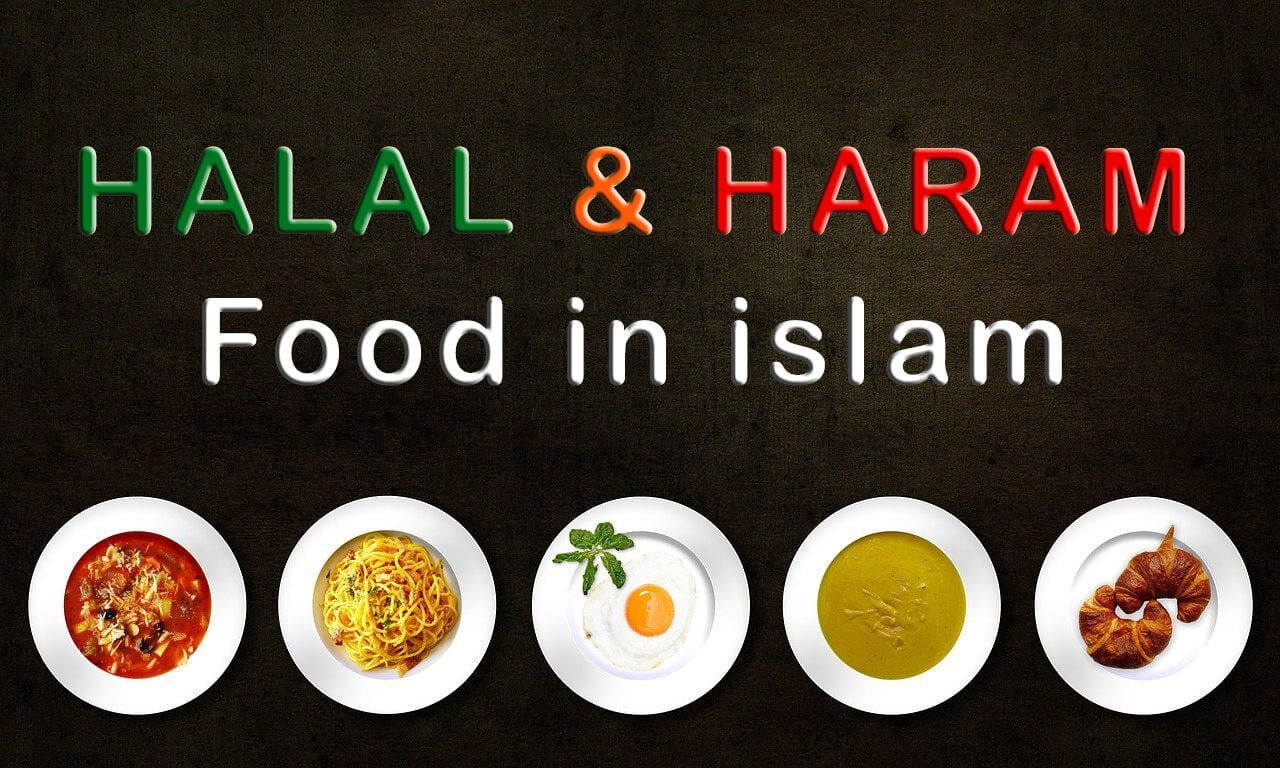
Islam is the perfect combination of physical and spiritual values, with Allah (SWT) designing humans in a way that every morsel and sip impacts not just the body but also the soul, influencing behavior and thoughts.
Within Islam, certain edibles fall under the category of ‘haram,’ strictly forbidden, while others are ‘halal,’ permissible. Muslims are obligated to adhere to these guidelines, refraining from consuming forbidden foods except in dire circumstances.
Meat is subject to the most stringent regulations. Some animals are declared ‘haram’ due to their detrimental effects on human health. Recognizing that Allah, the Creator, knows best what benefits or harms us, we submit to His wisdom. Here is an in-depth exploration of the Halal and Haram foods and animals in Islam.
Table of Contents
Classifications of Halal Foods
When Muslims dine out, it is imperative to ensure the food they consume is Halal. The following is a compilation of Halal foods:

- Halal meat is slaughtered in accordance with Islamic principles.
- Fish and other marine animals (no specific slaughter requirement).
- Fresh fruits and vegetables.
- Dairy products (excluding cheese made from non-Halal animal sources).
Classifications of Haram Foods
Here is a list of foods prohibited by Islam. Consuming them intentionally is considered a grave sin, except in exceptional circumstances where no other Halal options are accessible, in cases of extreme hunger, or for medicinal reasons when necessary to preserve one’s health and well-being.

- Meat is not prepared in accordance with the methods outlined in the Quran and Sunnah.
- Pork or any products derived from pork.
- Alcoholic beverages.
- Blood.
- Foods that potentially include a mix of ingredients like aspic or alcoholic pastries, among others.
Halal Animals
- All poultry
- All farm animals
- Sheep
- Goats
- Camels
Haram Animals
A comprehensive examination of non-Halal meat categories reveals that consuming the following animals is contrary to Islamic dietary laws. Similarly, Muslims are prohibited from consuming ingredients or products originating from these animals or those tainted by them.
- Animals that have been slaughtered or dedicated to anyone other than Allah.
- Carnivorous animals/birds are creatures that consume the flesh or blood of other animals/birds. This category includes lions, dogs, wolves, tigers, falcons, eagles, owls, reptiles, snakes, and crocodiles.
- Animals/birds that have been consecrated to idols.
- Animals/birds that have died from natural causes.
- Animals/birds that have perished due to suffocation.
- Animals/birds that have met their end through mistreatment.
- Animals/birds that have fallen from a height and died.
- Insects, excluding locusts.
- Animals/birds that have been killed and mutilated by predators. This group includes creatures dwelling both on land and in water, such as frogs and newts.
Why Do Muslims Consume Halal Food?
We Muslims only eat halal food for two reasons.
- The meat we consume plays a crucial role in maintaining our physical well-being and cleanliness.
- It is essential to reassure ourselves that our chosen method of animal slaughter is the most humane and considerate one.
As we’ve observed, the Zabihah slaughter method ensures that Muslims meet these two vital standards. This approach prioritizes swift and efficient slaughter while also guaranteeing humane treatment for animals.
These animals are specifically raised for Islamic slaughtering purposes, and it is imperative that Muslims provide them with a diet rich in healthy fruits and vegetables, ensuring they do not endure harm or mistreatment. Creating an environment where they have ample space to roam, graze, and access fresh air is essential. It is also crucial to be vigilant in selecting meals that do not contain any Haram ingredients, such as alcohol or pig-derived products.
Ways to Identify Halal Foods
Intentionally consuming something that is Haram is a grave sin, and it is incumbent upon every Muslim to refrain from doing so. Allah has bestowed upon us a wealth of permissible and enjoyable food. Furthermore, neglecting to ascertain the Halal status of food is also sinful. It is advisable to avoid foods that one is uncertain about to err on the side of caution.
Here are some ways to identify Halal foods in your country:
- Look for Halal foods that bear the “Certified Halal” logo, endorsed by the Muslim Council.
- Some products simply feature the word “Halal” on their packaging, which is a good indicator. However, it’s essential to verify the source’s trustworthiness.
- In the absence of a specific Halal symbol, consider searching for the vegetarian symbol, characterized by a green square with a green dot in the center.
- Be aware that certain items may display a non-vegetarian symbol, resembling the vegetarian one but in brown, indicating the inclusion of eggs.
- Scrutinize the ingredients list to ensure it does not contain alcohol, though most packaged products typically do not.
- Always inspect the labels carefully. Reviewing the listed ingredients is the most reliable way to determine whether a food item is Halal or not.
- When it comes to confectionery, pay attention to the presence of “gelatin” in the ingredients. In cases where there is no Halal or Vegetarian symbol, it’s likely to contain non-Halal gelatin.
- Focus on foods that contain emulsifiers—these are products that combine fats (or oils) and water. Examples include lecithin and mono- and di-glycerides. Keep in mind that not all products are definitively Halal or Haram, as some emulsifiers may come from plant or animal sources that can be either Halal or Haram.
- If you’re dining at a street food vendor or restaurant claiming to be Halal certified, always verify their certification.
- When seeking Halal meat, consider patronizing local Muslim-owned butcher shops.
Final Words
Islam is a comprehensive faith that offers a complete way of life, encompassing protocols, regulations, and etiquette for every aspect of daily existence. Given the integral role of food in our lives, dietary laws hold particular importance. For a Muslim, Halal foods and animals signify adherence to the Islamic legal stipulations. Embracing these laws not only fosters spiritual well-being but also bestows the riches of good health.
Read Also
12 Scientific Facts in the Holy Quran
Why Should We Learn the Quran Online?
Virtues and Significance of Friday in Islam
Rabi al Awwal – All You Need to Know
Importance of Online Quran Learning
Benefits of Reciting the Quran
Marriage in Islam – All You Need to Know

